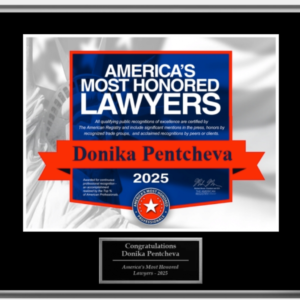Donika Pentcheva’s legal research has been cited in the UNC School of Law’s North Carolina Journal of Law & Technology in an article, titled “Juries in U.S. Patent Cases: A Comparative Portrait of the Boundaries of Democracy.”
The Introduction of the article provides as follows:
The optimal boundaries of democracy are persistently challenged even in countries like the United States, with its relatively long history of democratic traditions. When we suggest that almost anyone possesses the cognitive and emotional training and competence to make a particular decision, we are assuming the complexity of that decision does not require special expertise that would need to be acquired through training and reflective experience. Consequently, expertise and democracy have always been awkward roommates.
Expertise is increasingly seen in many contexts as just another point of view.5 Multiple factors have complemented the natural drive of our egos to see our conclusions as just as good as those of anyone else. For instance, our news industry has emerged as a 24-hour entertainment venue where argumentative fervor is a replacement for slow, reflective sharing of diverse observations. Another factor in the burgeoning disrespect for expertise is the ease with which anyone can now use the Internet to cherry pick reasons to buttress whatever conclusion people wish to believe. Finally, student appraisal of what happens on campus is now protected because of the emergence of customer satisfaction models in higher education; in turn, this has an immediate impact on university revenue.
This article aspires to encourage legislators and jurisprudential scholars to re-examine the optimal boundaries of democracy. The complexity of patent disputes provides an illustration of a legal setting that almost all of us would agree is highly complex. The idea of a jury of citizen peers is a hallowed component of the American legal system. But principles and high-sounding abstractions cry out for cautious application because pursuing them in extreme forms risks trampling on conflicting principles. For example, we may be devoted to free speech, but a shout of “Fire!” reminds us public safety should not be sacrificed on an altar of devotion to robust public discourse. An examination of the adjudication process for patent cases in multiple countries provides us with a laboratory in which alternative attitudes toward the proper scope of democracy are modelled.
The article can be found at: Juries in U.S. Patent Cases: A Comparative Portrait of the Boundaries of Democracy (unc.edu).


